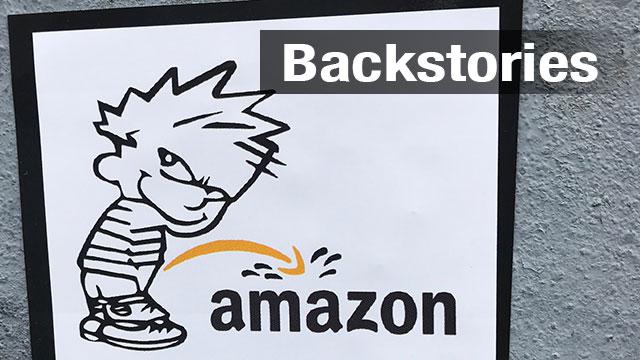When Amazon cancelled its plans to build a second headquarters (HQ2) in New York City earlier this year, many people wondered if, in addition to 25,000 new tech jobs, the city had also lost a potential way to pay for the city’s transit system. But the controversy surrounding Amazon's HQ2 is bigger than New York’s budget problems. It’s a lens into the divisions both within the Democratic party and between politicians and their constituents.
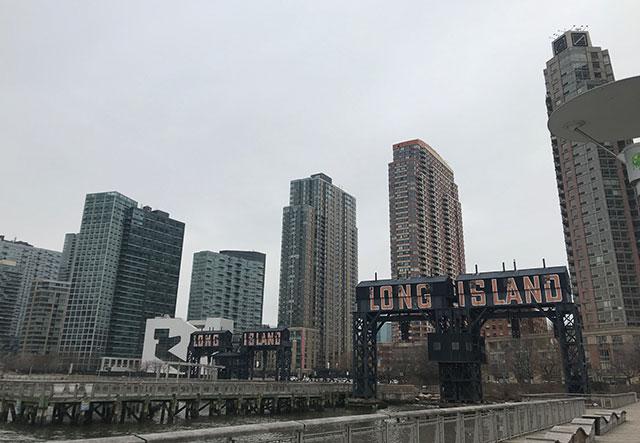
When Amazon revealed Long Island City in New York would be the location for HQ2, Democrats in the state government were quick to celebrate. At a press conference heralding the announcement, Andrew Cuomo, governor of New York State, boasted, "When I took office, I said we would build a new New York State -- one that is fiscally responsible and fosters a business climate that is attractive to growing companies and the industries of tomorrow.”
Bill de Blasio, mayor of New York City, specifically highlighted how Amazon would help transform the economic lives of all New Yorkers. He said, "This is a giant step on our path to building an economy in New York City that leaves no one behind.”
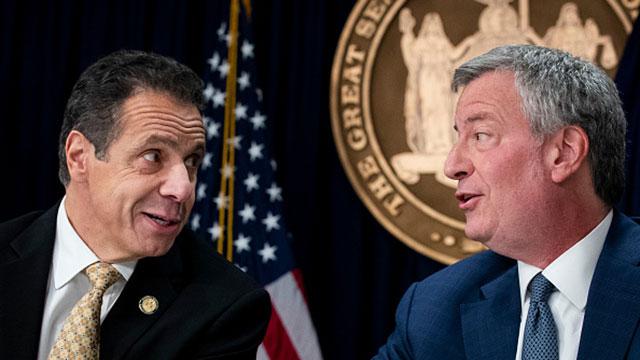
But while the governor and mayor cheered the announcement, strong opposition to the plan quickly emerged among more left-leaning, progressive Democrats and community groups. After news broke that Amazon had selected Long Island City for HQ2, Representative Alexandria Ocasio-Cortez, a rising star in the Democratic party from New York, immediately voiced her concerns on Twitter, writing, “Amazon is a billion-dollar company. The idea that it will receive hundreds of millions of dollars in tax breaks at a time when our subway is crumbling and our communities need MORE investment, not less, is extremely concerning to residents here."
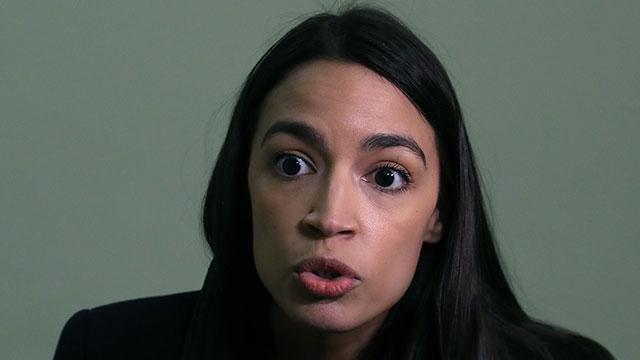
Criticism of financial incentives continued to grow after full details of the agreement became public, revealing that Amazon could ultimately receive nearly US$3 billion in tax subsidies over 15 years.
Other local politicians and community groups quickly voiced their opposition to the deal. State Senator Mike Gianaris, whose district includes Long Island City, excoriated the public subsidies, telling the Guardian newspaper, “They (Cuomo and DeBlasio) can't find two nickels to put together to pay for our subways but somehow could promise a billion-dollar company a massive free handout paid for by New Yorkers.”
Finally, on February 14th, just three months after inking the deal with New York, Amazon announced it was cancelling plans to locate HQ2 in Long Island City. In a short press release, it concluded, “A number of state and local politicians have made it clear that they oppose our presence and will not work with us to build the type of relationships that are required to go forward with the project we and many others envisioned in Long Island City.”
But the sudden death of the Amazon deal did nothing to stop the issue of corporate welfare from becoming a central policy concern in the Democratic party.
On March 8, just three weeks after Amazon announced plans to cancel HQ2, prominent 2020 Democratic hopeful Elizabeth Warren held a campaign rally in Long Island City where she proposed that beyond increasing taxes on corporations and wealthy individuals, antitrust regulators should also break up large tech conglomerates like Amazon and Alphabet.
“We have these giant tech companies that think they rule the Earth. They think they can come to towns, cities, states, and bully everyone into doing what they want... It is time to break up America’s tech giants," she said.
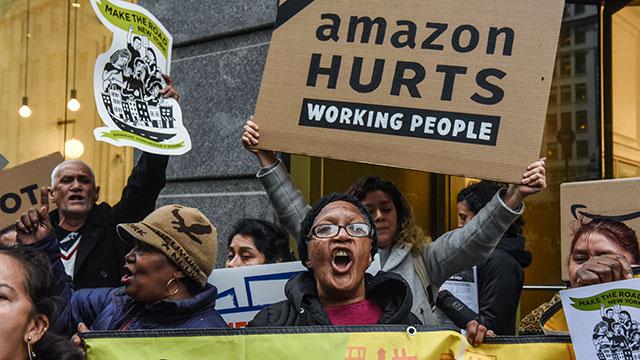
But centrist Democrats aren’t the only ones increasingly at odds with more left-wing progressives. In the case of Amazon, they also seem to go against broader popular opinion. While opposition to HQ2 in Long Island City was notable on social media and local news coverage, sentiment among those living in New York appears to have been more supportive. A poll released by Siena College on February 12, just two days before Amazon cancelled the project, showed 56 percent of New York State and City residents were in favor of the Amazon deal, while 36 percent disapproved.
Local business owners and residents I spoke to were also eager to voice their support. One of them, Robert Briskin, lives in Long Island City and manages Maiella, an upscale Italian restaurant located one block away from the proposed HQ2 development site. He said he planned to significantly expand his business operations when Amazon moved to the neighborhood by adding a lunch service at Maiella and another restaurant opening in the near future.
“I think conservatively, we needed at least 25 people. We have another location that’s a new concept about four blocks from here..., so 50 jobs is just what our little company was going to add,” he explained.
When Amazon cancelled HQ2 in Long Island City, however, he had to abandon expansion and new hiring. “Those plans are done. Amazon pulled out, so there is no lunch shift. There are no 50 jobs on our end. I wish there were, but there aren’t. There’s no plan-B either, you know?” he said.
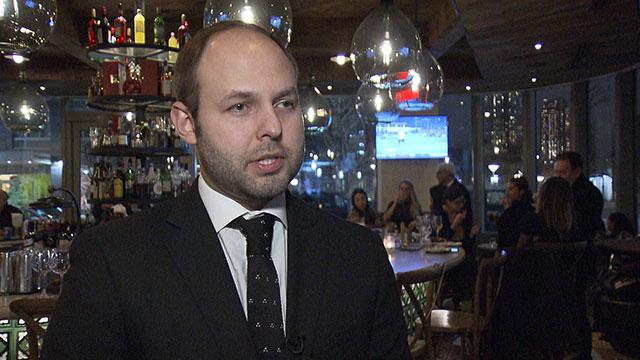
The struggle to bring Amazon to New York City and the eventual fight to make it leave highlights many of the ideological fissures forming within the Democratic party. Centrist, pro-business Democrats like Andrew Cuomo have largely dictated the party’s priorities since at least the Clinton administration. But a progressive vanguard has emerged, and it has been largely successful in its efforts to steer the intra-party political conversation leftward.
These new Democrats support expanding the social safety net, and they're in favor of taxing wealthy corporations and individuals for it. For companies like Amazon, this could mean the start of a new era of increased regulation and higher taxes.
But as I stand in this stopped subway car, I wonder how this will play out in the daily lives of the people living in places like New York. There were many problems with the Amazon deal, but the effects of budget shortfalls are already being felt in real time. Companies like Amazon have been a major force behind US economic growth since 2008. What part will they play in the future?
